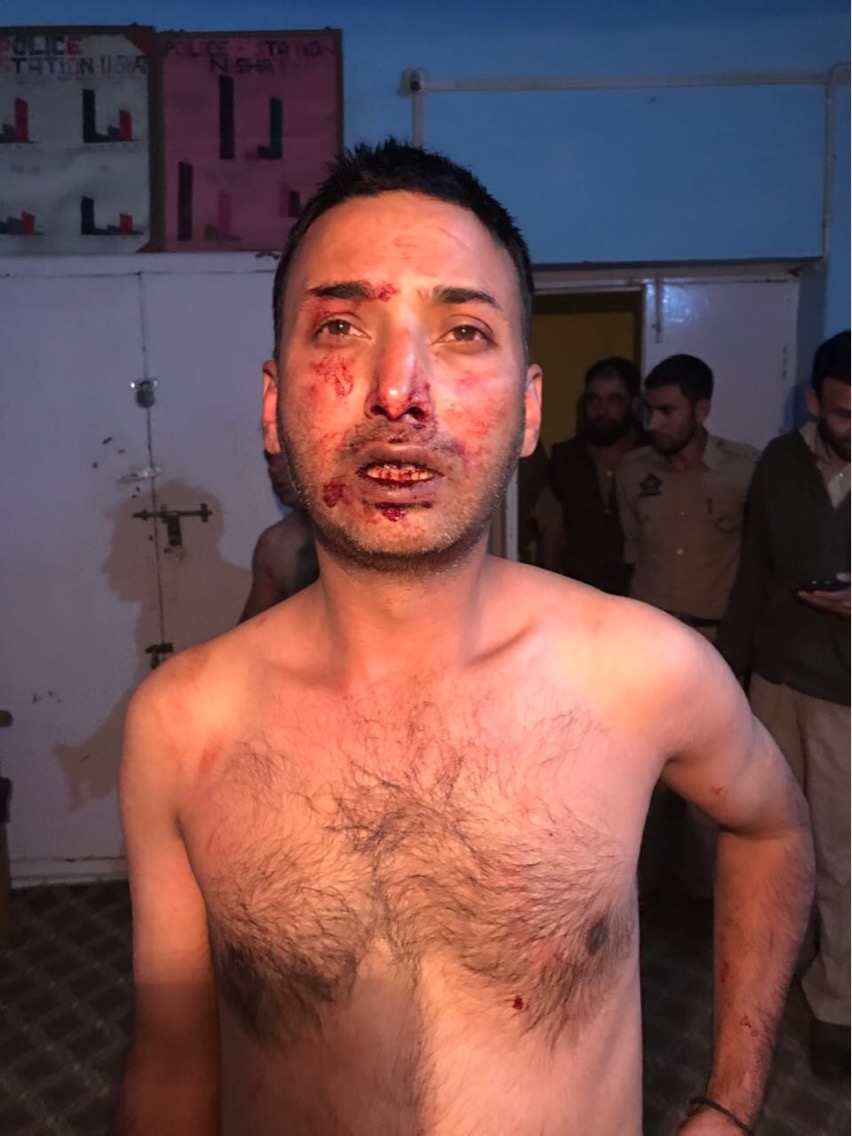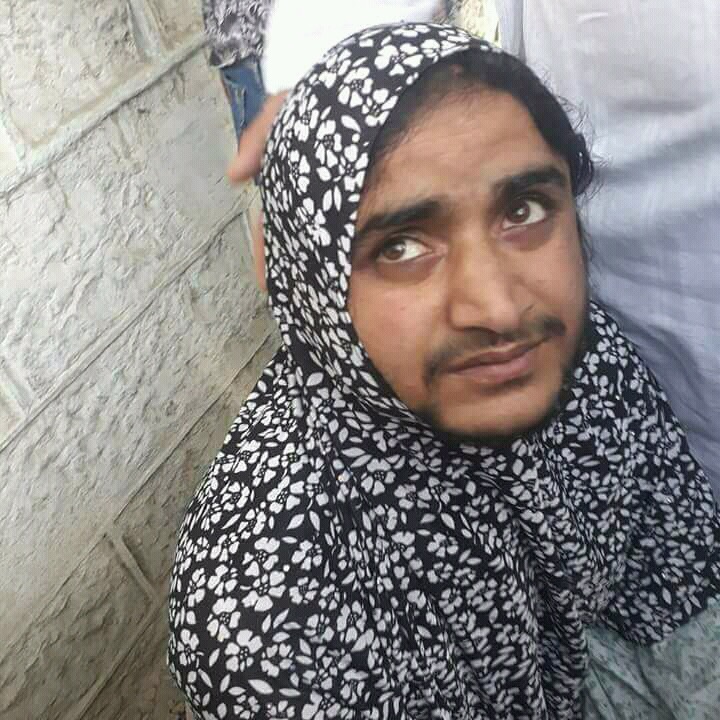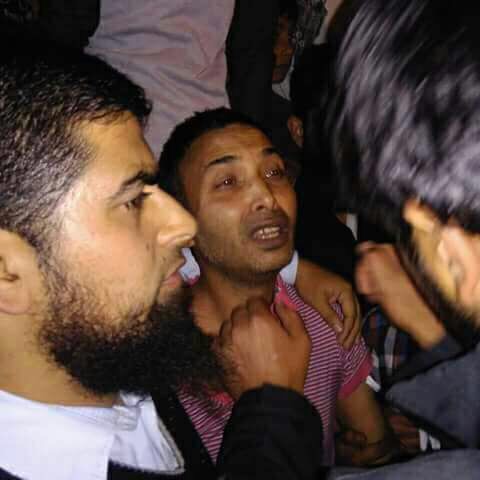As the mysterious hair-cutting of the womenfolk gets upgraded to a sort of epidemic, Kashmir is witnessing massive costs for its economy and the social fabric, reports Tasavur Mushtaq

October 3, 2017, Nayeem Ahmad was on cloud nine. A resident of Watergam Rafiabad in north Kashmir, he drove 23 kms to meet his friend, ‘love of life’ in Delina.
First date, the newly met “couple” had to exchange gifts and a ‘SIM card’ to talk frequently. Enthusiastic, they met. As they started to talk, her father made a dramatic appearance. Fear factor sent Nayeem fleeing.
Nervous, residents caught him and beat him up. Police had to intervene and disperse the crowd by resorting to tear smoke shells to rescue him. He was not thrashed for meeting the girl, but he was mistaken as a braid-chopper. His cries “I am a lover, not a braid-chopper”, already part of the folklore, will scare ‘love birds’ for a long time.
The phenomenon of braids cutting of women, usually in mysterious circumstances, has created crises in Kashmir. First reported from Rajasthan, it took a long route to Kashmir. With more than 150 cases reported already, Kashmir was closed literally for three days in protest.
Nayeem was lucky to be rescued. Septuagenarian Abdul Salam Wani was not. Returning from a Masjid in Danter (Islamabad), a young man, believed to be his relative’s son, hit him with a stone mistaking him as a braid-chopper.
On October 8, when frenzied announcements from local Masjid dominated Lal Bazar night, Ashfaq Ahmad asked his mother to get him the sword, he once was gifted by a Sikh friend. Sword in his hand, Ashfaq latched all the doors and was the last person to sleep. An hour or two later, Ashfaq says, he could feel somebody moving in the corridor. The movement was zeroed to be in the washroom. He took his sword and waited outside the washroom. When the door opened, inside was Ashfaq’s brother-in-law, who had come for a night along with his wife, Ashfaq’s sister.
The fear has led to mob violence and instilled lynch mentality. Individuals in a bid to scare the choppers away resort to acts of violence. Invariably, their victims are innocents.
In the broad day light, people intercepted a transgender near Tourist Reception centre, thrashed and abused him. Police intervention prevented his lynching. This cross-dressed “braid chopper” was a resident of Lalan Islamabad and had come to pay obeisance at Makhdoom Sahib (RA) shrine.
Assisting Srinagar Municipal Corporation (SMC) unofficially in keeping the streets clean and earn their living, rag pickers are ‘soft’ target of the ‘mob frenzy’. Their looks and attire make them more susceptible. The first incident was reported from Gandbal Soiteng, falling under Police Station Nowgam where a 2000-strong mob started to abuse and heckle four rag-pickers. When police started rescue, protests and stone-pelting erupted. On October 8, 2017, Sunday, six foreigners– three Australian and one each from South Korea, England and Ireland, met the same fate when they were lost in the alleys of old city in Rainawari.
Travelling from Leh to Srinagar, the group, police said, lost way around 2 am. Their vehicle was stopped at Kanikachi Lati Mohalla. “As the locals saw foreigners, they raised hues and cries which caused a huge crowd of people on spot turning into an unruly mob,” police said. Some elders, however, ensured restraint and rescued tourists and handed them over to police.
Almost a similar incident led to near murder in Ganderbal. Two non local Muslims were on way to a Mohalla where their sister is married. They lost track, were caught, beaten to the pulp and were rescued by cops. Their cries “we will never come to Kashmir again” shall remain a question mark for Kashmir’s traditional hospitality forever.
Streets apart, there is fear in homes as well.

On October 8, when frenzied announcements from local Masjid dominated Lal Bazar night, Ashfaq Ahmad asked his mother to get him the sword, he once was gifted by a Sikh friend. Sword in his hand, Ashfaq latched all the doors and was the last person to sleep. An hour or two later, Ashfaq says, he could feel somebody moving in the corridor. The movement was zeroed to be in the washroom. He took his sword and waited outside the washroom. When the door opened, inside was Ashfaq’s brother-in-law, who had come for a night along with his wife, Ashfaq’s sister. Embarrassed, Ashfaq was all in sweat, explaining his concern. By the morning everybody knew what happened in the night and were in sorry state of affairs. However, his brother-in-law understood the gravity and brushed off the incident as a ‘security measure’.
Samreena, 22, is so scared that she proceeded on leave in her college. Restricted to her kitchen corner, she does not allow anybody to enter until she gets call on her cellphone. For her father, Ajaz Ahmad, the code to enter home is the ATM pin. “I can only enter after conveying ATM pin to my daughter,” said Ajaz, a resident of Bemina.
Nuclear families are in grave “insecurity”. In certain cases they have laid wires on the top of boundary walls. Shabir Ahmad, a resident of Bemina, has installed electric lock at a cost of around Rs 23000. Father of only child, the three member family living in a 3-storey spacious house, said the lock gives them picture of person standing at the door. He shivers when somebody pokes at him: “What if the choppers are ghosts?”
His brother, living near-by, sleeps in single room along with his two daughters. “I can’t risk life of my daughters. Even if there is nobody, but fear can be lethal as well.”
Government seems clueless. Chief Minister Mehbooba Mufti sees it as an attempt to create mass hysteria and undermine the dignity of women. “Braid chopping incidents are attempts to create mass hysteria and undermine the dignity of the women in the state,” she tweeted. “Government will ensure steps are taken to find the motives behind these attacks.”
Government is getting bricks daily in real and the virtual world. “Present government seems to have completely lost the grip on how to tackle this crisis,” NC leader Ali Mohammad Sagar said. “The mass hysteria has gripped the whole state and it is really frustrating as to how government is not able to identify and arrest those responsible for the mayhem.”
This situation has brought 1990s back, according to octogenarian Muhammad Yousuf Mukhdoomi: “Night patrolling, announcement on loud speakers, beating of drums, neighbourhood gathering.” But the oldie has a word of advice: “don’t follow rumours blindly. You never know the motives.”
Separatist, however, see it as as “intimidation” of Kashmir. “The attack on the dignity of women folk is unbearable and no sane person can ever tolerate this inhuman act,” Syed Ali Geelani was quoted saying. “PDP-BJP government is executing the pernicious plan of RSS.” Mirwaiz sees it as an attempt to “instill fear and divert attention from the main issue”.
Police said they are investigating every single case but there are no answers so far. Psychologists have not been involved so far even though a medical team was constituted earlier. DGP Dr SP Vaid candidly admitted that “police don’t have a Jaadu ki chadi (magical wand).”

As the scare goes hyper, the costs are surging, for Kashmir as a society. Everywhere, the finger of suspicion is raised towards everybody whom the accuser does not know: a distant neighbour, a labourer, mentally challenged people, rag-picker and even guests. For the government fight travel advisories of Western nations, it must be breaking news: there are travel advisory for people within Mohallas in Kashmir: “Don’t unnecessarily visit places where you are unknown.”
And if you move, Dr Shakeel Ahmad, suggests: be decently dressed. “There is less chance that you will be suspected and beaten if you are nice looking,” he said. To his post, came a reply by Engineer Javid: “Try to avoid being alone. If possible, be accompanied by a local.”
Fear apart, there are other costs as well. Running a travel agency, Bilal Ahmad, a resident of Nawa Kadal says that this has its impact on tourism. “There is decline in number of tourists,” he said. “We already had a trickle but who will risk his life.”
One is dominant: the people do not believe what the government says. It suggests a crippling trust issue. It is being increasingly attributed to “security agencies”. Then there is an element of exaggeration and rumours, which are ingrained in the tradition of Kashmir.
Dr Abid Hussain is constructing a house. The carpenters he had hired have left the work mid-way and rushed back to their home states. “When there is rumour that braid choppers are present in the area, the outsiders become the first casualty,” he said.
This situation has brought 1990s back, according to octogenarian Muhammad Yousuf Mukhdoomi: “Night patrolling, announcement on loud speakers, beating of drums, neighbourhood gathering.” But the oldie has a word of advice: “don’t follow rumours blindly. You never know the motives.”
The new norm on the streets of valley is that there is minimal movement on roads after the sun set. Many Masjid goers have stopped to pray congregation prayers in the morning and night.
While night goes into patrolling and shouting, the day gets consumed in manufacture and dissemination of the conspiracy theories. The in-thing is: anybody who gets the maximum benefit out of the crisis is behind it. But who is getting the most of it? The answer will come from whom you ask. With days getting into the discussions and the analysis, the growth and outcome has plummeted phenomenally, in offices, in the market and in apple orchards.
Ghulam Rasool is a shopkeeper in Lalbazar who put it beautifully. “Kashmir has entered into winters two months before,” he said “We are fanning the flames ourselves as well.”
The crisis has multiple shades. One is dominant: the people do not believe what the government says. It suggests a crippling trust issue. It is being increasingly attributed to “security agencies”. Then there is an element of exaggeration and rumours, which are ingrained in the tradition of Kashmir. But that never means braids are not being cut on daily basis.















